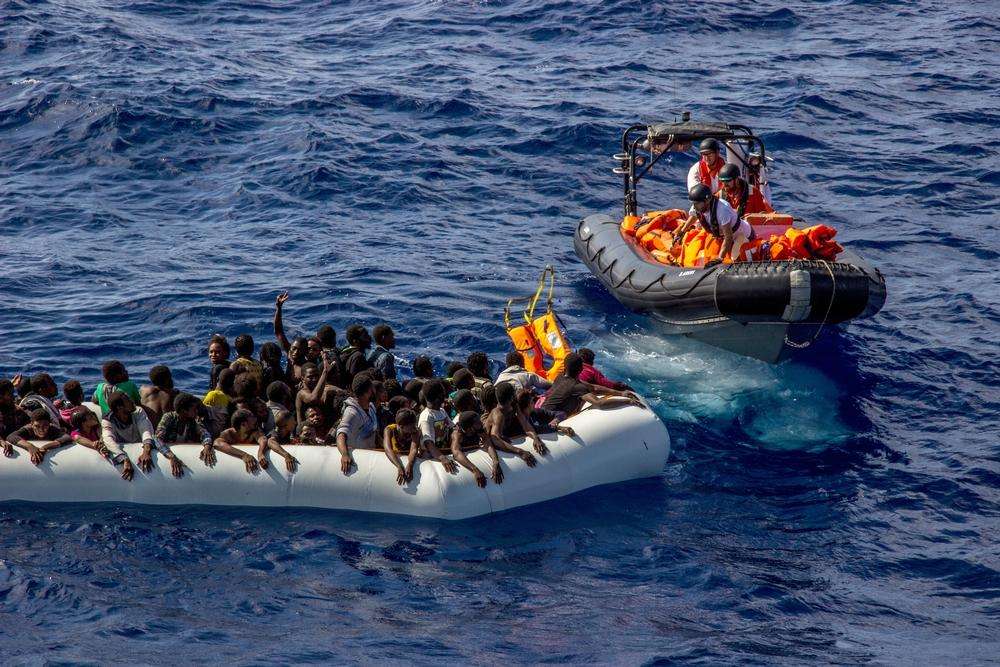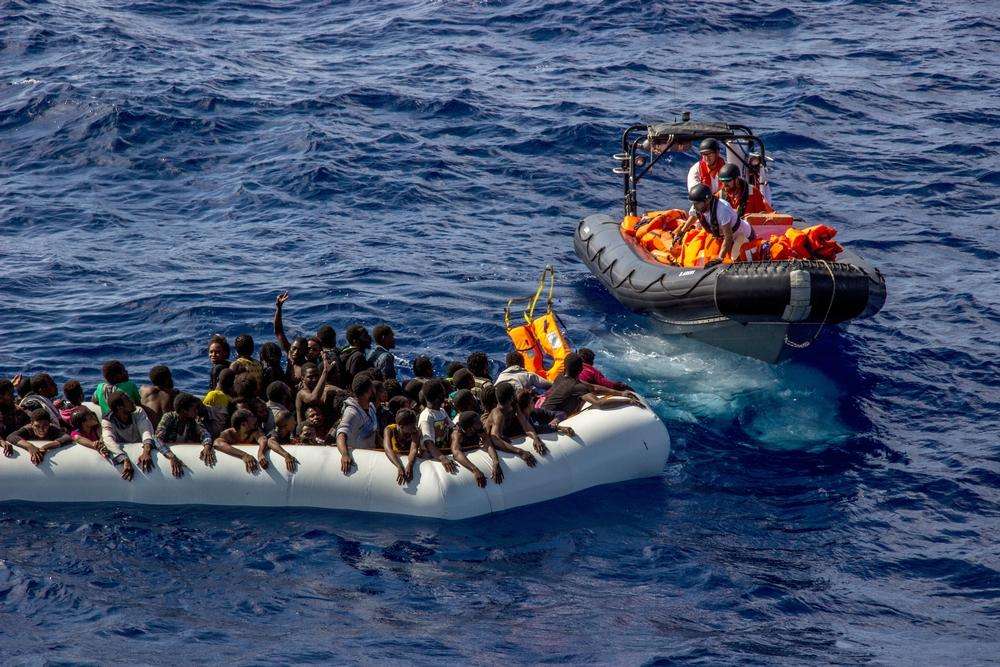ROME/NEW YORK, OCTOBER 26, 2016—Twenty-five people onboard an overcrowded inflatable boat were found dead yesterday during a search and rescue operation by a Doctors Without Borders/Médecins Sans Frontières (MSF) ship in the central Mediterranean, which saved 246 people from the boat and another nearby raft.
“We discovered that in the bottom of the boat, 25 victims of suspected fuel inhalation were hidden beneath a mixture of seawater and fuel,” said Michele Telaro, field coordinator on MSF’s search and rescue ship, the Bourbon Argos. “It took us three hours to retrieve the first 11 bodies because the mixture of petrol and water is so potent that we just couldn’t risk being in that boat for long periods of time. It was horrific.”
The MSF team on the Bourbon Argos discovered the extent of the deaths after rescuing 107 survivors and then being called to urgently rescue 139 people from a second distressed raft.
After retrieving the first 11 bodies, as it was already dark, the MSF team called upon the assistance of the organization Sea Watch to recover the bodies still trapped in the rubber boat. Sea Watch recovered the remaining 14 bodies and transferred another body recovered from a different incident to the Bourbon Argos's morgue.
Among the people rescued by the Bourbon Argos yesterday, 23 needed medical treatment for chemical burns, including 11 with severe burns. Seven patients required medical evacuation and two were so severely injured that they were taken by helicopter for emergency treatment in Italy. The medical team onboard the Bourbon Argos incubated and stabilized one woman prior to her evacuation, likely saving her life.
The survivors, among them the husband and the eight-month-old child of one of the victims, were given immediate psychological aid by the MSF team and will be given further support and care by an MSF psychological first aid team once they disembark in Italy.
“This is a tragedy, but we can’t say that today is an exceptional day at sea,” said Stefano Argenziano, MSF operations manager. “The past weeks have been horrific, with our rescue teams and other boats involved in almost continuous rescues and far too many men, women and children dying. Sea rescue operations are becoming a race through a maritime graveyard and our rescue teams are overwhelmed by a policy-made crisis where we feel powerless to stop the loss of life.”
So far in 2016, 327,800 people have arrived in Europe by boat and 3,740 have died at sea, according to the UN Refugee Agency (UNHCR).
“2016 is expected to soon be declared the deadliest year on record in the central Mediterranean Sea,” Argenziano said. “How many tragedies like this do we need before European Union leaders change their misplaced priority on deterrence and provide safe alternatives to the sea?”
MSF has teams onboard three ships in the central Mediterranean Sea and has rescued over 17,000 people this year. In the face of this tragedy MSF again reiterates that while search and rescue is lifesaving, providing safe and legal routes is the only way to end deaths at sea.





